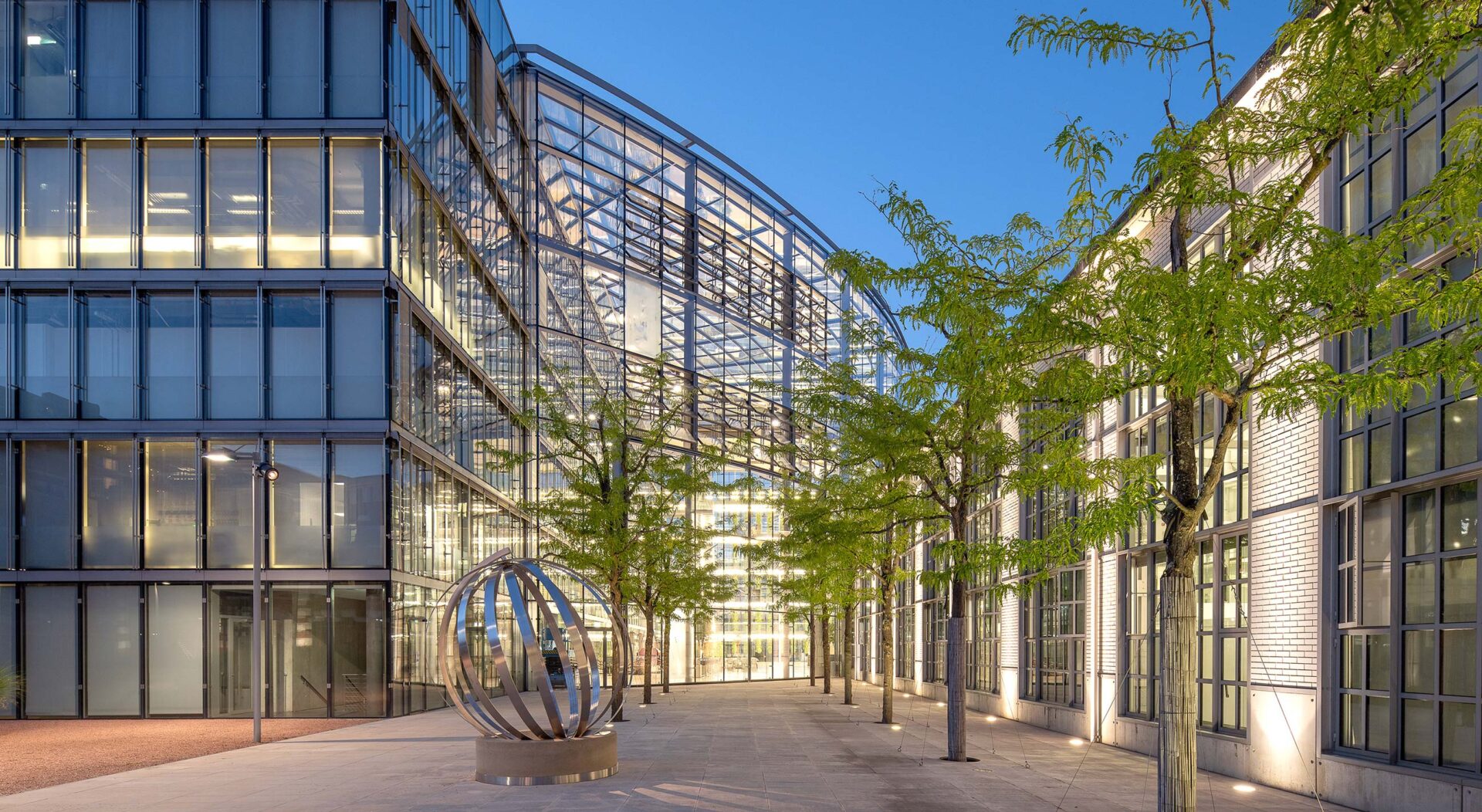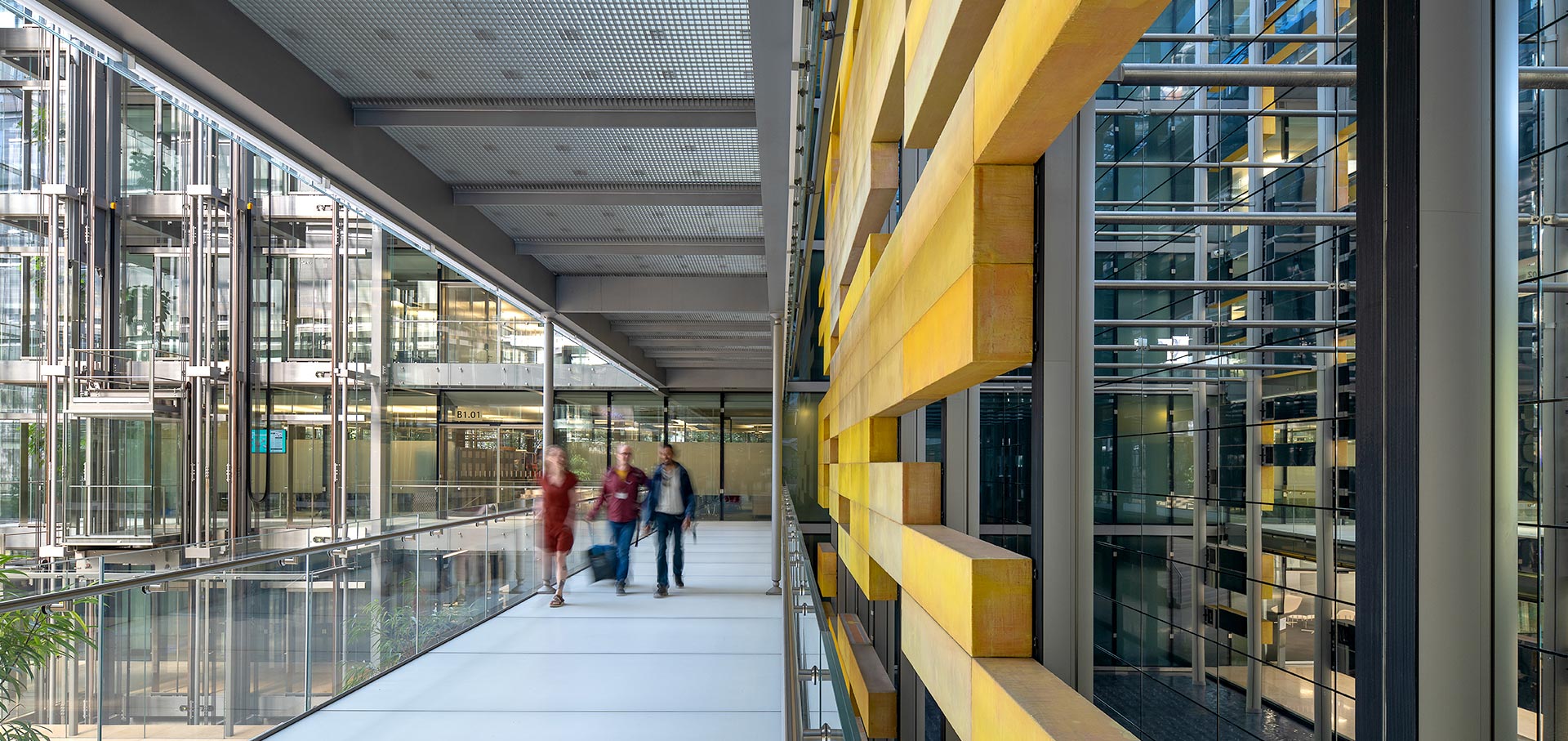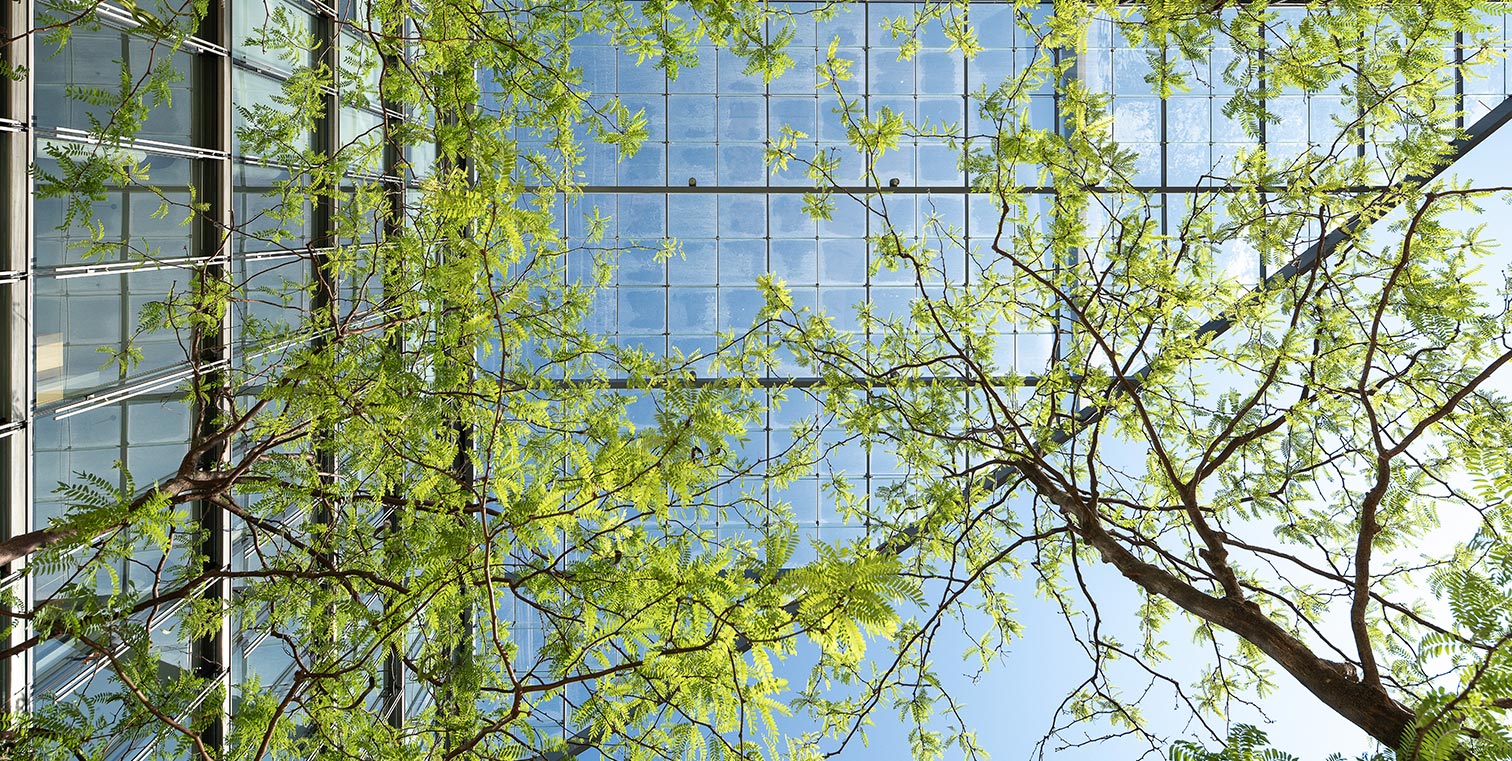



History
The building that is now home to Campus Biotech has its origins among the redbrick buildings of the 19th century engineering company, Sécheron, one of the historic jewels of Swiss industry. They were brought by the global biotechnology company, Serono, in 2003 to become their global headquarters.
The new complex was inaugurated in 2006, at the very same time that Serono was bought by Merck KGaA. Merck Serono and over a thousand of its employees occupied the building for six years, but, in 2012 decided that it would be closing its Geneva headquarters, putting the site up for sale.
With a vision of retaining the location, buildings and infrastructure for the service of scientific endeavours and for the benefit of the Lake Geneva region, as well as a Consortium composed of the École polytechnique fédérale de Lausanne (EPFL), the University of Geneva (UNIGE), the Bertarelli Family and Hansjörg Wyss was formed to acquire the site. In 2013 the Consortium was successful and two years later Campus Biotech was officially inaugurated.
FCBG
The Fondation Campus Biotech Geneva (FCBG) is a leading neuroscience and neurotechnology research hub, managing state-of-the-art facilities and services across 26,000 sqm for 500+ active users and 60+ research groups (EPFL, UNIGE, HUG, HEPIA).
Find us
9 Chemin des Mines
1202 Genève



